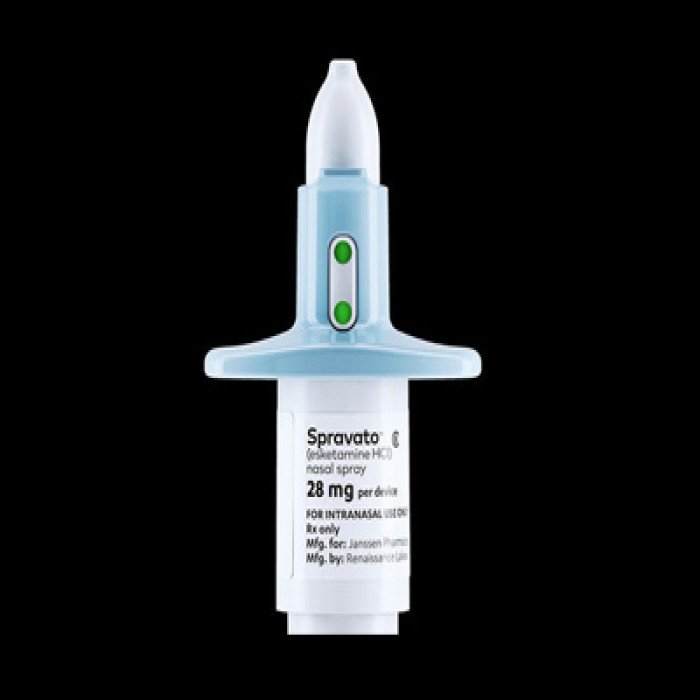
Eskatamine nasal spray is a new medication that has been approved by the FDA for the treatment of depression. It is a form of examine, which is a dissociative anesthetic that has been used for decades in medical settings. Unlike other antidepressants, esketamine nasal spray works by targeting a specific receptor in the brain called the N-methyl-D-aspirate (NMDA) receptor. This receptor is involved in the regulation of mood, and targeting it may help to improve symptoms of depression.
Eskatamine nasal spray is given as a nasal spray, and is typically administered in a healthcare setting under the supervision of a healthcare professional. It is usually given twice a week, with the first dose given in the healthcare setting, and subsequent doses given at home. The starting dose is usually 50 mg and may be increased to a maximum of 200mg per dose.
Eskatamine nasal spray is indicated for treatment-resistant depression, which means that it is used in patients who have not responded to at least two other antidepressant treatments. It is also indicated for patients who are in a suicidal crisis and require rapid treatment.
Eskatamine nasal spray can cause side effects, including dissociation, which is a feeling of being detached from oneself or the environment, hallucinations, and increased blood pressure. Other side effects may include headache, sedation, and feeling dizzy. The medication should not be taken with alcohol or other central nervous system depressants, as this increases the risk of serious side effects.
Eskatamine nasal spray should be used with caution in patients with a history of hypertension, as it can cause an increase in blood pressure. It should also be used with caution in patients with a history of substance abuse, as it has a potential for abuse and dependence.
Conclusion
Eskatamine nasal spray is a new medication that has been approved by the FDA for the treatment of depression. It works by targeting a specific receptor in the brain called the N-methyl-D-aspirate (NMDA) receptor which is involved in the regulation of mood. It should be used under the close supervision of a healthcare provider and only for treatment-resistant depression and patients who are in a suicidal crisis and require rapid treatment. The side effects can include dissociation, hallucinations, and increased blood pressure. It should be used with caution in patients with hypertension, a history of substance abuse, or other health conditions.


